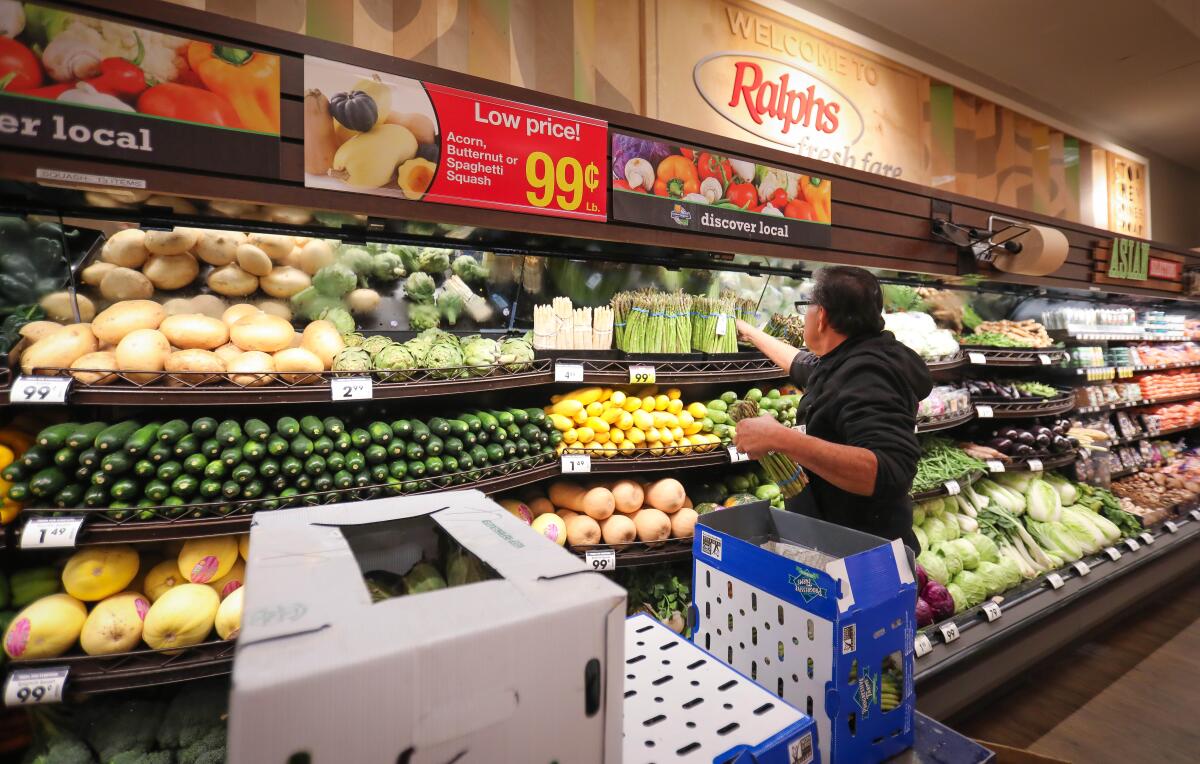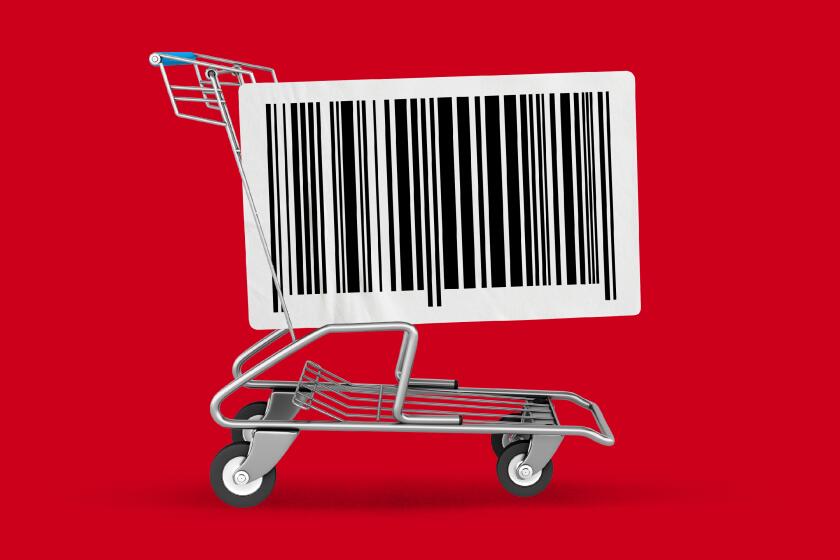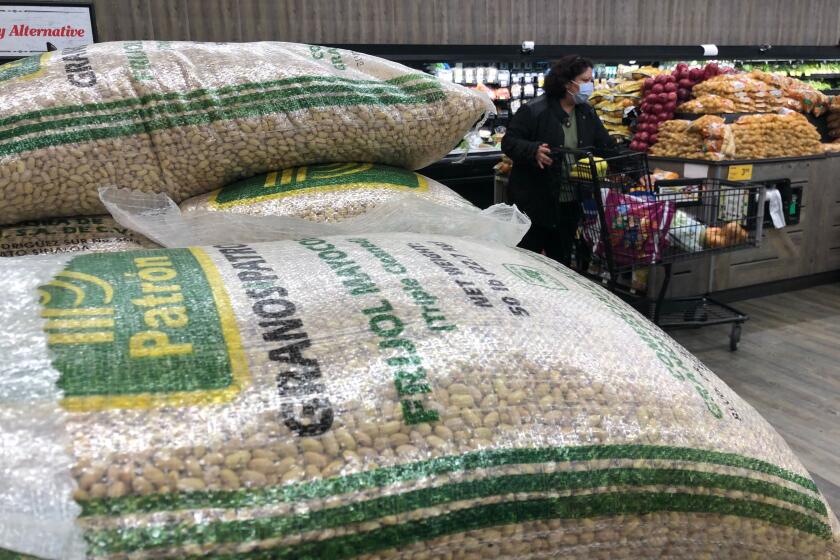Ralphs owner Kroger wants to merge with Albertsons to create a grocery giant

- Share via
Kroger Co., which owns Southern California’s Ralphs and Food 4 Less supermarket chains, is in talks about a tie-up with rival Albertsons Cos. in a deal that would create a U.S. grocery giant, people familiar with the matter said.
An agreement could be reached as soon as this week, the people said, asking not to be identified discussing confidential information. Talks could still be delayed or falter, according to the people.
The exact structure and price of the deal couldn’t immediately be learned. Any potential transaction may face antitrust scrutiny.
Representatives for Albertsons and Kroger couldn’t immediately be reached for comment. In California, Albertsons operates stores under its own name as well as Vons, Pavilions and Safeway.
The potential deal would be among the largest U.S. retail transactions in years, and the biggest U.S. supermarket deal since the last time Albertsons changed hands, in 2006, when it was bought by Supervalu, CVS Health Corp. and a group of investment firms for about $9.8 billion, according to data compiled by Bloomberg.
Inflation hasn’t been this high in decades. We compiled a snapshot of prices at ten grocery chains in the L.A. area. How does your local store stack up?
These talks come amid a dramatically different deal-making landscape. Soaring food prices are a key driver behind inflation in the U.S., while industry consolidation has given top players much greater market share. That could present a number of political and regulatory hurdles for this kind of combination, as politicians blame corporate greed for higher prices and antitrust officials eye tougher merger rules.
“This is the type of transaction that really looks good on paper, but the actual practicality of achieving regulatory approval by the FTC could be difficult,” said Jennifer Bartashus, an analyst at Bloomberg Intelligence. “If you think about the store bases of the two respective entities, there is a lot of overlap in very competitive markets.”
Nationwide, Kroger is the No. 2 grocery seller, with a 9.9% market share, compared with Walmart Inc.’s almost 21%, according to data firm Numerator. Albertsons is fourth with 5.7%.
The two companies have particularly similar footprints on the West Coast, said Rupesh Parikh, an analyst at Oppenheimer & Co. That could set the stage for significant store divestitures in some parts of the country. One area with little overlap, however, is the Northeast, where Kroger has little presence.
A tie-up would give the combined entity increased purchasing power, a sprawling shopper loyalty program and greater heft in technology investments as online grocery sales increase.
Try these tips for saving on groceries as prices soar.
Cincinnati-based Kroger grew less sharply than Albertsons through the COVID-19 pandemic but has held on to more of its gains. In addition to the Ralphs and Food 4 Less chains, Kroger operates stores under names that include Kroger, Fred Meyer, Harris Teeter and King Soopers.
Boise, Idaho-based Albertsons has been studying options to boost growth, having seen sales gains during the pandemic cool at the same time that labor and logistics expenses have been rising.
Albertsons shares closed up 11.5% at $28.63 on Thursday, giving the company a market value of about $15 billion. Kroger rose 1% to $46.57, putting its market value at about $33 billion.
Albertsons in February announced a strategic review of its businesses — which include the Acme, Tom Thumb and Shaw’s chains as well as its eponymous stores — that raised the prospect of potential disposals to create value for shareholders.
The grocer is almost 30% owned by Cerberus Capital Management, the New York private equity firm that first invested in the business in 2006. Albertsons emerged from Cerberus’ portfolio when it held an initial public offering in 2020.
More to Read
Inside the business of entertainment
The Wide Shot brings you news, analysis and insights on everything from streaming wars to production — and what it all means for the future.
You may occasionally receive promotional content from the Los Angeles Times.












